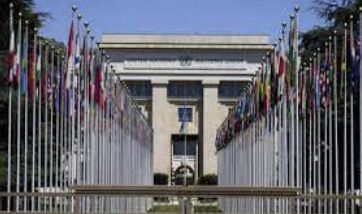International Human Rights Day: China's Rights Situation Under Scrutiny as Concerns Escalate
Concerns surrounding human rights in China raised on International Human Rights Day, highlighting limitations of the EU-China rights dialogue and repressive measures taken by Chinese authorities.
This year's International Human Rights Day marks an important milestone, as it commemorates 75 years since the United Nations adopted the global foundational document for protecting the rights of every individual worldwide. However, as this day is observed, concerns about the rights situation in China have come to the forefront. Recent talks between EU leaders and Chinese officials touched on various topics, including trade and the Ukraine war. The EU expressed its deep concerns about the rights situation in China, and both sides welcomed the resumption of their human rights dialogue.
Wang Lutong, head of European affairs at the Chinese Foreign Ministry, affirmed China's willingness to continue the dialogue, but also cautioned against using human rights as a tool to criticize the nation. Foreign Minister Wang Yi further defended China's human rights record, rejecting any attempt to impose values or interfere in internal affairs under the pretext of human rights. He argued that China has forged its own path for human rights development, one that suits its unique national conditions and adapts to changing times.
Rights groups, however, highlight the limitations of the EU-China rights dialogue, stating that it falls short of achieving real outcomes for dissidents. Activists like Yu Wensheng, a human rights lawyer, and his wife Xu Yan, who were detained by Chinese police on their way to meet with the EU ambassador, face vague charges commonly leveled against rights activists in China. Wang Quanzhang, a disbarred human rights lawyer, continues to face harassment even after being released from prison. The repressive measures taken by Chinese authorities against activists and their families have led to increasing concerns about the state of human rights in China.
A new report by the rights group Safeguard Defenders highlights China's use of collective punishment, including exit bans and transnational repression, to control the actions of human rights advocates and their loved ones. The situation has also had a significant impact on the personal lives of those involved. Lu Lina, whose husband Liu Sifang fled China in 2019, experienced harassment from border police and was prevented from leaving the country for three years.
The couple had to resort to filing for divorce in order to overcome the exit ban. Liu, now settled in the US with his family, emphasized the cruel methods employed by Chinese law enforcement officials as a means to deter dissidents. As Western governments face criticism for their inadequate response to China's human rights violations, rights groups argue that a more powerful China under President Xi Jinping has become impervious to international pressure. Concerns are mounting that the situation in China is worsening, jeopardizing the fundamental rights of its citizens and those advocating for change.




